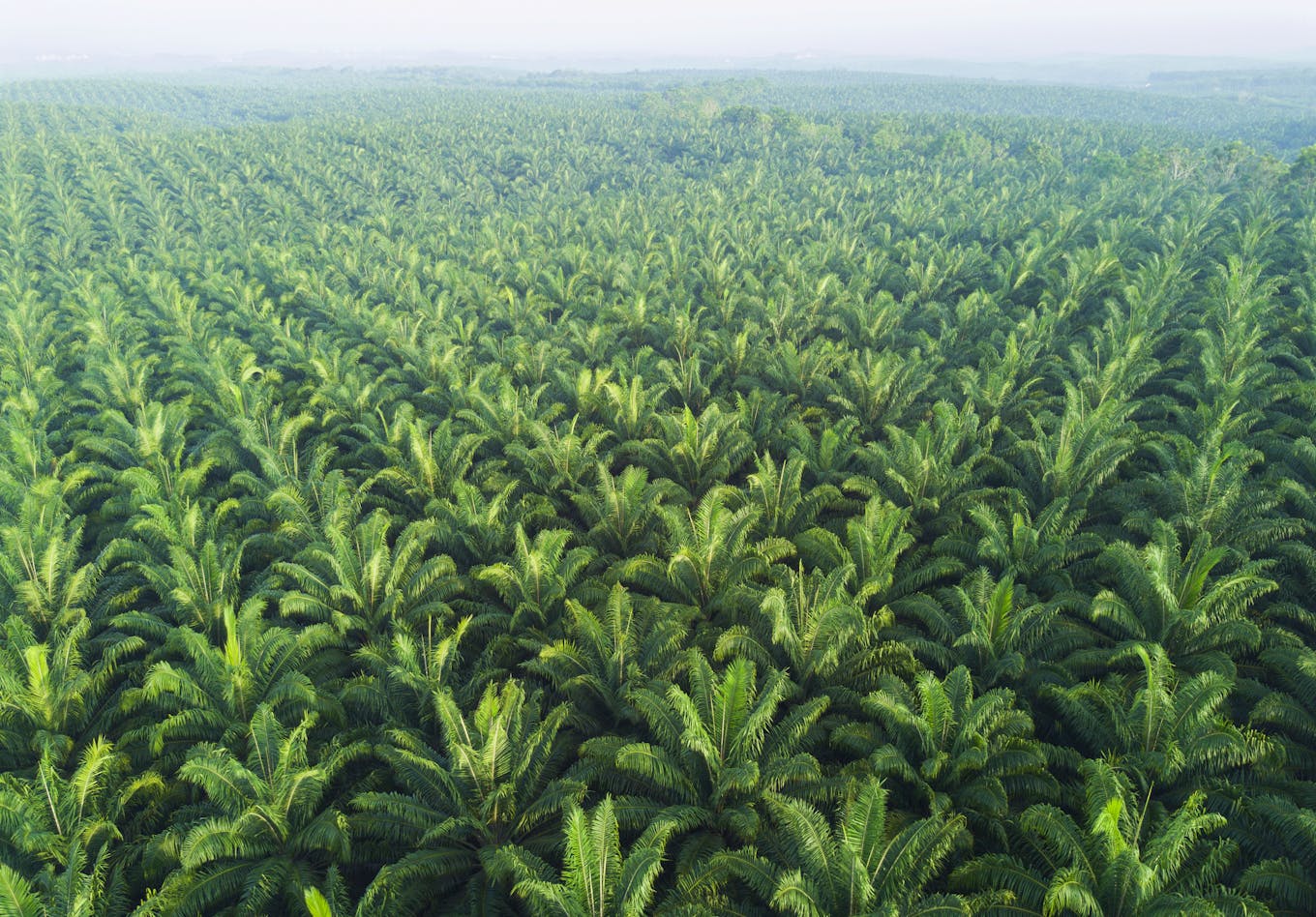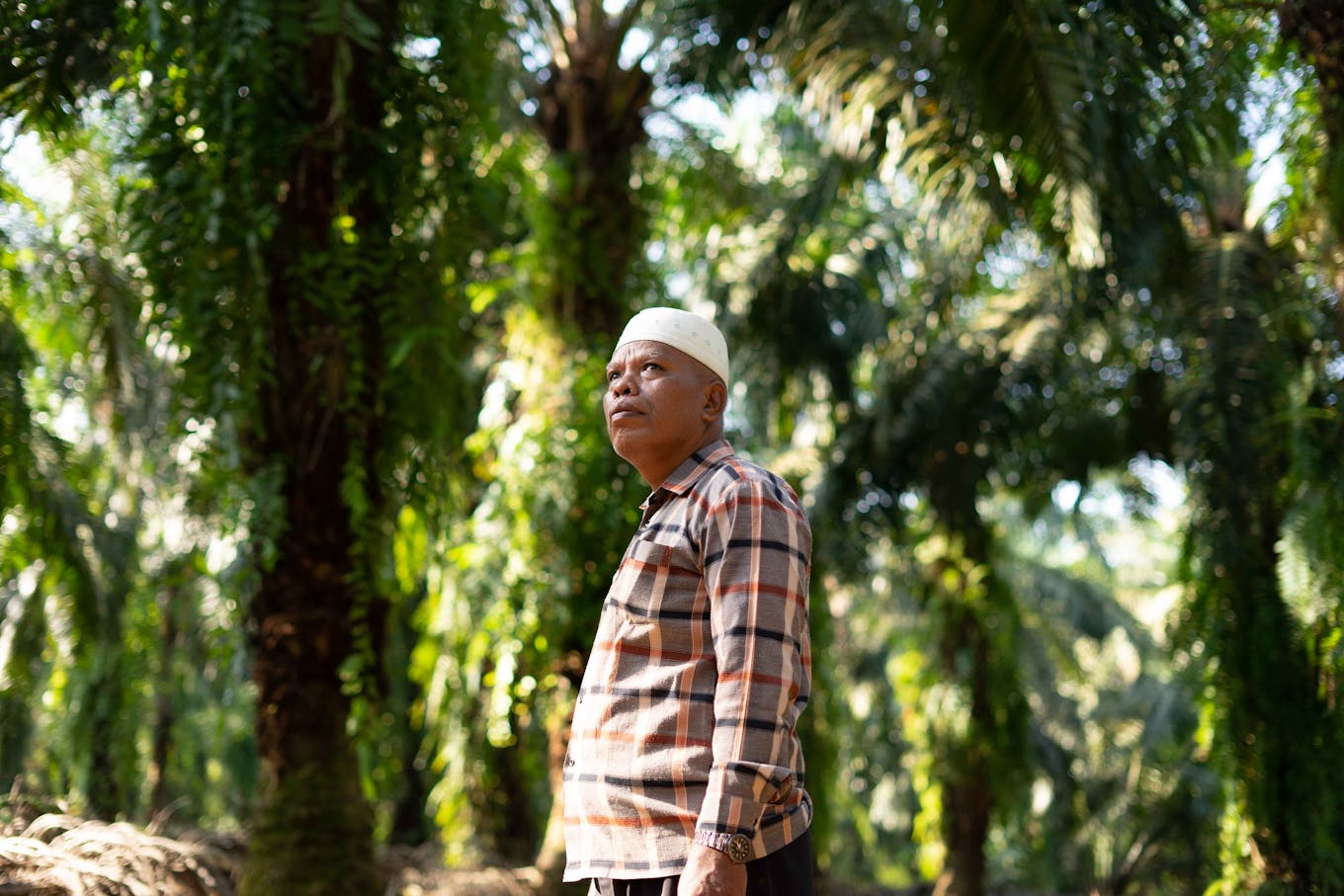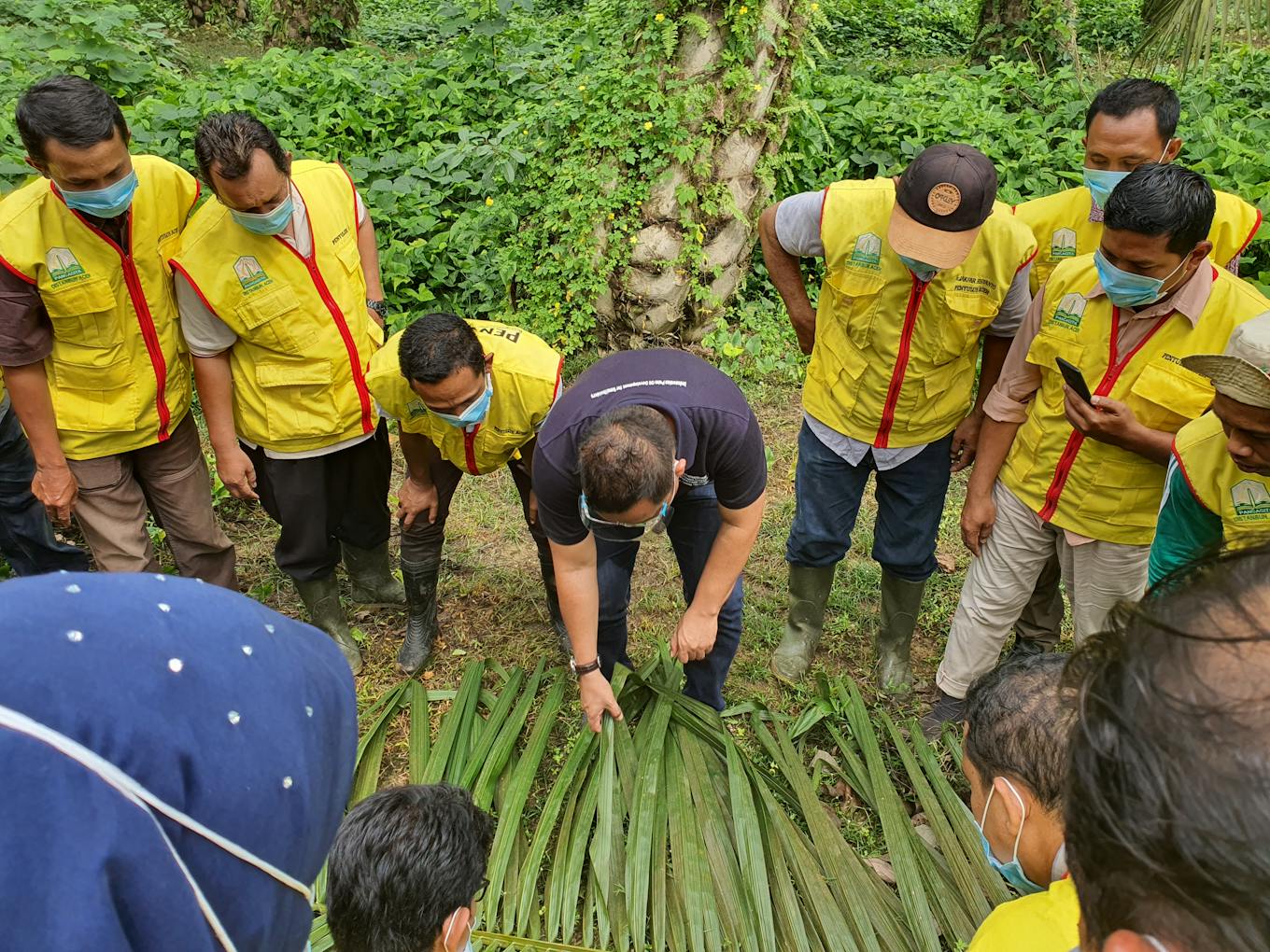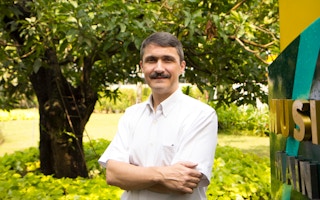The most interesting part about his job, says Olivier Tichit, the director of sustainable supply chain for Singapore-headquartered palm oil company Musim Mas, is finding out what motivates people.
Palm oil, says the Frenchman, is a people business, and once it is clear what people want, then it is possible to work towards achieving a sustainable palm oil supply chain that works for everybody.
“This business is about producers, consumers, competitors, government, non-government organisations (NGOs), and academics — either fighting against each another, or working together,” he told Eco-Business in an interview in October. “Finding out what’s in it for the other party is key to making the right things happen.”
Tichit, a tropical agronomist who’s spent most of his career living and working in Medan, north Sumatra, is just under a year and a half into his job at Musim Mas, Indonesia’s biggest exporter of an oil found in half of all supermarket products. People skills will be key to the success of the company’s recently launched sustainability policy.
An update of a policy devised in 2014, the Sustainability Policy 2020-2025 focuses on four key areas: improving the lives of smallholder farmers, workers and communities, delivering positive environmental outcomes, maintaining responsible relationships with suppliers, and driving innovation in sustainable practices.
In this interview with Eco-Business, Tichit talks about how the challenges of implementing the sustainability policy in a pandemic, how Europeans and Indonesians think differently about forests, the palm oil-free movement, and the importance of building trust between producers and consumers.
You’ve lived in Indonesia for more than 20 years, but you’re originally from Europe, where there is considerable opposition to the palm oil trade. What do you make of the cultural divide between Europe and Indonesia over palm oil?
I have spent the last couple of years trying to explain that Europeans and Indonesians have different definitions of a forest. For Indonesians, a forest is an area legally gazetted by the government. For Europeans, a forest just means trees. Europeans say, you have to protect your forests. Indonesians say, we are protecting our forests. But they’re not talking about the same thing, and there were big misunderstandings because of that difference in definition.
“
It’s painful for me to see palm oil portrayed as the bogeyman.
But things have improved. Indonesia has made progress with its forest protection commitments and is better at communicating them. Europe hasn’t changed its stance on forests, but the communication between the two is better now.
What do you see as the biggest challenge in your job as director of sustainable supply chain?
A lack of trust between producers and consumers. That trickles throughout the industry, and is a big problem because a lot of time is wasted and focus is lost on what we’re trying to achieve. We spend a lot of time discussing what is a perfect commitment or achievement, but very little time is spent discussing how to get there and that leaves little room for experimentation and adaptation. And if someone at the other end of the supply chain does not trust the information passed on to them, they’re reluctant to support the efforts of the producer.
There have been some hard-hitting environmental campaigns against the palm oil sector over the years. Do you feel that NGOs have influenced the level of trust between producers and users?
Yes. The final user of palm oil has seen those campaigns and thought the industry is bad, how can I stop using palm oil? But at the same time, the industry has been engaging with NGOs, and has made a lot of progress towards sustainability. Now, some NGOs have been trying to show that progress has been made, but the industry has been portrayed so negatively that this has been difficult to do.

A palm oil plantation in Indonesia. Image: Musim Mas
In October, Australian confectioner Darrell Lea became the latest brand to declare it had removed palm oil from its products. What are your views on the palm-oil free movement?
It’s always painful for me to see palm oil portrayed as the bogeyman. The palm-oil free movement is highly political, and it’s also an effective way of marketing and selling a product. Darrell Lea is an interesting case. They used to be an RSPO [Roundtable on Sustainable Palm Oil, the lead eco certifier for palm oil] member, and now they’re moving away from palm oil — it’s a bizarre move.
The palm oil industry could have done a better job at explaining that it is just an agricultural activity like any other, which has lifted millions of people out of poverty and plays a critical role in many communities.
Palm oil has been attacked so much that it is now a lot more transparent than other crops, and companies that declare they’re palm oil-free need to be sure that they’re replacing palm with an ingredient that is genuinely more sustainable.
Some people who attack palm do so without fully understanding the changes that the industry has made, and without supporting the work that some producers are doing to grow palm in a sustainable way — again, it comes down to trust.
Can the palm oil industry do better? Yes, we can. Are there many responsible producers of palm oil? Yes, there are. And they should be recognised for what they’ve achieved. It’s a lot easier to portray palm oil in a bad light than it is to show the good the industry is doing.
What are the biggest challenges for implementing the new sustainability policy?
The challenge is not getting things done, it’s how quickly we can get things done. We often hear people say ‘you’ve been doing this for years, what’s taking you so long?’ We have a big supply chain with a lot of smallholders in it, and getting everyone to the level of sustainability we want takes time.
For the palm oil industry, achieving change at scale requires change at the landscape level. But that requires a lot of work and involves many different actors, including communities, other commodities and local government. You cannot fix palm oil in isolation. That can be difficult for stakeholders further down the value chain to understand.

A palm oil farmer in Indonesia. Musim Mas works with more than 30,000 smallholder farmers in its training programme, Indonesia’s biggest. Smallholders are critical to the sustainable production of the world’s most widely consumed edible oil. Image: Musim Mas
In 2010, members of the Consumer Goods Forum, including big palm oil users such as Unilever, Mars, Mondelez, and Procter & Gamble, pledged that by 2020 they would be deforestation-free. What are your thoughts on the challenges of meeting that target?
It was the hope that the 2020 zero-deforestation target would be met, but it wasn’t cast in stone. What’s more important is what has been achieved, and the path that the 2020 target set companies on.
This year has made meeting the target particularly difficult, because of the Covid-19 pandemic. We are working towards 100 per cent traceability for our own mills. We were almost there, and there was just one mill left that would have been complete by the second quarter of the year. But we just couldn’t put people in the field safely to do the final verification.
“
We are very supportive of our suppliers, with one condition — they are willing to change and show progress.
Our work engaging with smallholders on sustainable cultivation has also slowed down. So has our work engaging with suppliers. Some could be done online, but it’s not the same as engaging in person. We’ve lost six months of engagement work to the pandemic.
Why can’t you engage with suppliers remotely?
A lot of our suppliers are small or mid-sized businesses. Video calls are ok for sharing documents. But if you want to really help suppliers adapt [to sustainable practices], you need to meet them face to face. You can’t expect them to understand everything remotely. Trust is key, and we need to be confident that the knowledge we’re passing on hits home.
An investigation by Rainforest Action Network last year found that suppliers of Musim Mas had been sourcing palm oil grown in the Leuser ecosystem, a critically important wildlife reserve in Sumatra. How has the company responded to those findings?
It’s a blow to find suppliers in breach of our commitments. We responded to the report, investigated, and confirmed that there were some ties between suppliers and deforestation. Subsequently, we increased our engagement with suppliers — we want to get more traction in how our suppliers work with their own suppliers.
We are very supportive of our suppliers, with one condition — they are willing to change and show progress. If a supplier deforests and is unwilling to change, we will not support them or buy from them. We help our suppliers in areas where there is deforestation risk by alerting them to high-risk areas.
Musim Mas does a lot of work supporting smallholders. How are you working to improve the farming practices of smallholder farmers in Indonesia?
The practices of smallholders are not always good — not just in terms of sustainability but basic farming methods. Some palm oil smallholders in Indonesia used to be rubber farmers who switched to palm oil after the price of rubber dropped. They turned to palm to provide for their families, and believed that they’ve got the right soil and the right climate to grow it, but did not know how to cultivate it properly.
So we train smallholders how to grow palm oil the right way. In five years, in collaboration with International Finance Corporation and Rainforest Alliance, we trained over 32,000 smallholders. It is the largest palm oil smallholder training programme in Indonesia.

Governmental agricultural officers learn about laying palm fronds as part of a Smallholders Hub training session. Image: Musim Mas
To scale up our outreach, we developed the Smallholders Hub approach, working with the local government on how to train smallholders in their district – it is akin to a train-the-trainers model. In Aceh Tamiang, a regency in Aceh, the Sustainable Trade Initiative (IDH) set up a centre of excellence involving the government, NGOs, and palm oil companies. The goal is to transform Tamiang into a verified sustainable sourcing area.
This sort of landscape transformation was not possible even five years ago, and is the change we want to see. 2020 may not be the year where we have removed deforestation from our supply chains or the industry as a whole. But it is the year that we found better ways to collaborate on sustainable palm oil.
What’s your vision for the future of sustainable palm oil?
I hope we can connect producers and consumers better, to enable mutual understanding. The ultimate goal at a landscape level is that we don’t need intervention from companies or NGOs to demonstrate good practices or prevent bad practices. That will take 5-10 years. Then I could retire!















